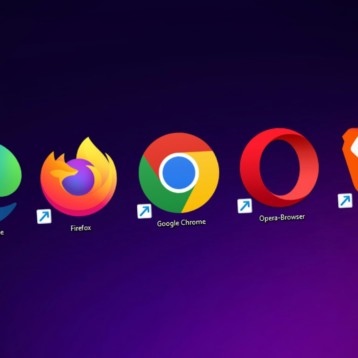
The Global Employment Market in 2020 underwent a major upheaval because of the Covid-19 pandemic. Although few companies provided the possibility to work from home last year, it is the standard now for most companies. By 2025, 70% of workers are anticipated to work at least five days each month remotely. While 2020 might be viewed as a faraway year, we anticipate that 2021 will continue the trend of remote work.
All it takes is a high-speed internet connection to carry out all your office work from home. We recommend you look into the remarkable plans and offers from Spectrum to enjoy a seamless surfing experience at affordable rates.
Work From Home is Permanent
The percentage of professionals working from home full-time is anticipated to increase by 2021, according to an Enterprise Technology Research report. Erik Bradley, the chief engagement strategist at ETR, said: “The productivity statistic demonstrates that remote work is effective.”
Another Gartner CFO poll recently found that more than two-thirds (74%) of respondents intended to permanently transfer people to remote work once the crisis is addressed. “We all expected permanent distant labor growth but did not expect it to triple from pre-pandemic levels.” Big IT companies lead the way, as predicted.
In May, San Francisco-based Twitter declared that workers are authorized to work remotely. Square, which is also run by Jack Dorsey on Twitter, has approximately the same approach and enables workers to work indefinitely from home even after reopening premises. Mark Zuckerberg, CEO of Facebook, said at the end of May that many of them will work indefinitely remotely and intend to keep workers remote by 2021.
Work From Home Means Spacious Office
CTO of ‘TransparentBusiness’ says that it will eventually become a matter of the past to have huge physical offices. “Fully distant firms without their headquarters will continue to develop, as other entities choose to decrease their hybrid team office or forget to save money entirely,” adds Vela. In this regard, firms are already taking measures.
Earlier this summer, Outdoor REI revealed that its 8-acre corporate facility is being sold brand new in Bellevue, Washington since it has not been used. CEO Eric Artz stated in a statement that the business “is ready to work remotely as an integrated, supported and standardized model for workers. Many firms also propose a new blend of remote and local employers to create a hybrid style of work. One method may be to have days for meetings and cooperation with individuals and then other days for remote work. Brainstorming sessions, the implementation of new initiatives, or team-building activities may be kept for a personal meeting, while remote working days may be individual. By removal of cabinets and introducing collaborative conference rooms, the workplace may be rebuilt and re-organized.”
More Involvement is Needed in Remote Employment
In an office environment, the doors to development are opened to good attitudes and solid interactions. One of the downsides of remote employment is that professional success is harder to emphasize. Employees must do additional work to digitally magnify their commitment to guarantee that fresh possibilities are accessible. With employees mostly collaborating via e-mail remotely, the commitment to communicate and to identify employers is considerably more difficult. Employees may stand out as leaders when working at home by engaging in virtual events, being engaged in online meetings, and maintaining a high deep passion.
Working Remotely Affects Productivity: Myth?
Work from home has significantly altered performance management. Instead of working hours, organizations are focusing more and more on working tools and applications to assist the performance of employees. Employers require visibility about what they do to optimize staff efficiency. For example, Time Doctor, Timely, and TransparentBusiness can be used for remote management solutions.
In the near future, a new post such as the Director of Remote Work may even be required to manage production and cooperation, as well as to maintain operational efficiency. Some firms may carry out continuous and not yearly performance evaluations. Continuous feedback will be important as managers assist employees to navigate their jobs and fulfill expectations of performance. Reflecting on how targets are set and determining important performance measures is essential to the new normal management of remote workers.
Cyber Security is Essential for Remote Work
Since businesses enable a large percentage of the workforce to stay remote, cyber security will become a major problem in 2021. 85 percent of the respondents indicated that cyber security was highly important or greater than before the pandemic in the Cisco Future for Secure Remote Work reports. The way data are accessible and secured properly is a genuine problem. NVisium Security Company CEO Jack Mannino thinks that businesses should think about cybersecurity spending more strategically, and how better to secure people, data, and equipment.
Conclusion
Work from home has become the new norm amid the Covid-19 Pandemic. Although it was quite challenging for people to get accustomed to working remotely initially, the fact that it is going to stay like this for coming years has made it possible.







![10 Top Game Sites Not Blocked By School [2024 Updated]](https://thefutureofthings.com/wp-content/uploads/2024/10/image-25-358x358.png)


